Why a brand-new all-suites hotel in Taipei offers coronavirus quarantine accommodations
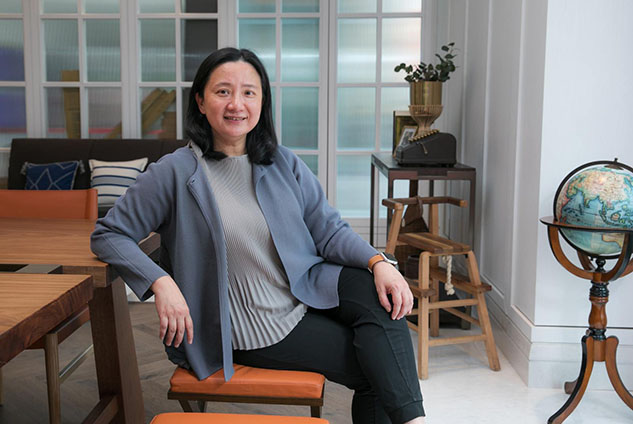
Source:Chien-Ying Chiu
Hospitality industry veterans think Ma must have gone crazy. There is nothing hoteliers fear more than having their facilities associated with an infectious disease like COVID-19. Having invested heavily in the creation of Hanns House, why did Ma decide to respond to the government’s appeal to provide quarantine accomodations for people who cannot quarantine at home, despite knowing that this could poison future business prospects?
Views
Why a brand-new all-suites hotel in Taipei offers coronavirus quarantine accommodations
By Wang Yi-chihFrom CommonWealth Magazine (vol. 696 )
Editor’s note: Read our latest stories on the COVID-19 global pandemic
On March 19, Ma, who is the daughter of Yuanta Financial Holdings founder Rudy Ma, announced the hardest decision of her life to date at a news conference with officials from the Taipei City Government.
Given that a rising number of Taiwanese students have been fleeing from the pandemic in the United States and Europe but had no place to go for the compulsory 14-day home quarantine back in Taiwan, Ma decided to put off the official opening of Hanns House, slated for late April, which had been running trial operations since last December. Instead, Hanns House would become Taipei’s third “quarantine hotel”, albeit the first one to announce itself as such in public.
Once the news was out, Ma’s decision received mixed reviews, with some speculating that it was a publicity stunt to grab headlines, while others said it might be aiming to generate at least some revenue given that tourism has come to a virtual standstill due to the pandemic.
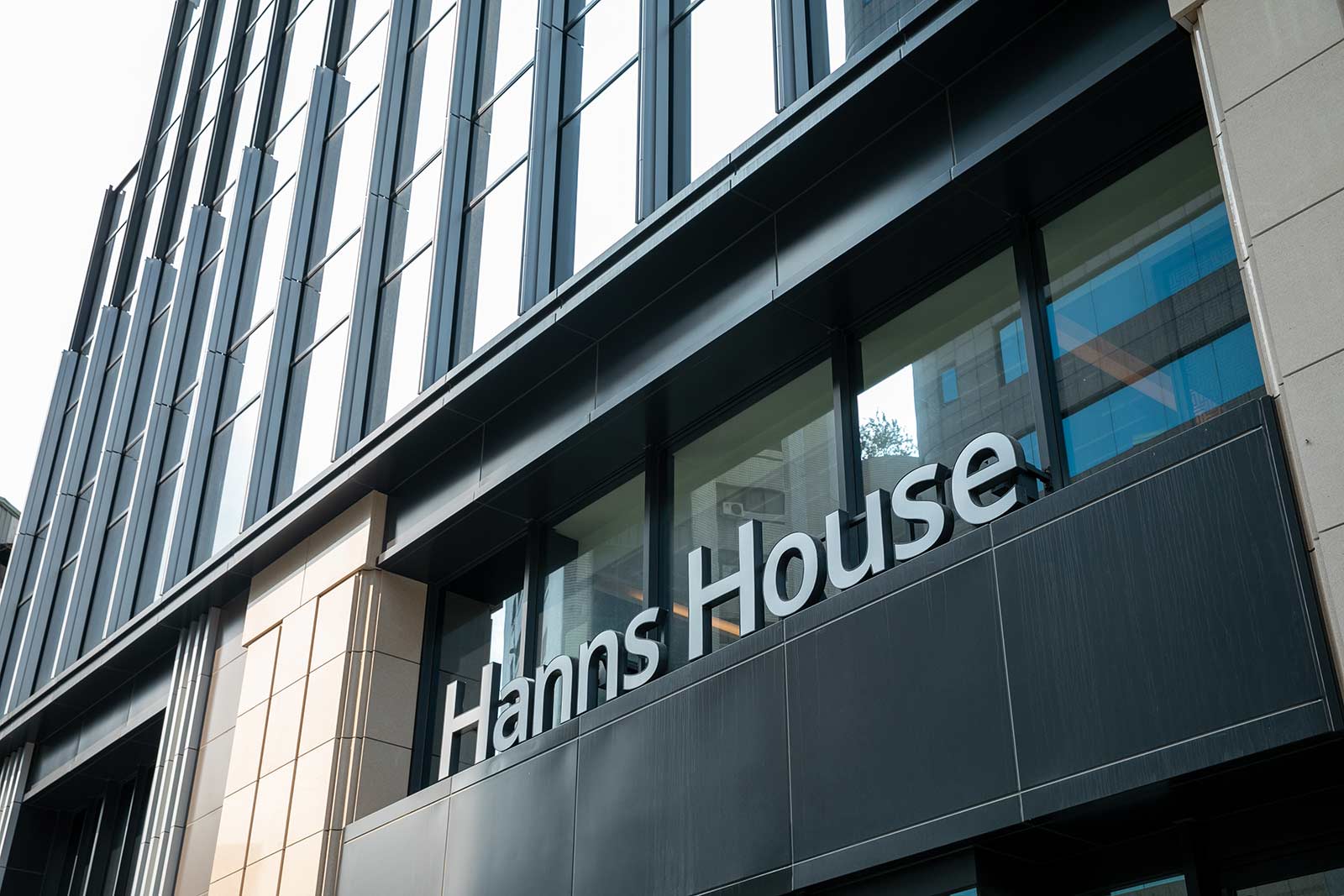 Photo by Chien-Ying Chiu
Photo by Chien-Ying Chiu
The general manager of one five-star hotel who did not want to be named did not mince words, saying “This is a very short-sighted move. Once the pandemic is over, who would dare stay at a hotel that had served as a quarantine facility? I know I wouldn’t.”
Industry insiders felt that Ma, whose professional background is in the financial industry, simply lacks good judgment when it comes to the hospitality business.
So how did she arrive at her decision?
Responding to the interviewer’s question, Ma cited a passage from the Gospel according to Peter in the Christian bible.
“Each of you should use whatever gift you have received to serve others, as faithful stewards of God’s grace in its various forms.”
Before making any major decision, she asked herself a few questions to see whether she was living up to this ideal:
Are you honest?
Are you fair?
Are you circumspect and far-sighted?
Do you dare to take responsibility?
Would you be able to face God and your shareholders undaunted if you had to settle accounts today?
“I never liked to do easy jobs; one is supposed to do meaningful things in life,” says Ma in describing what she considers her guiding principle in life aside from just running a company well.
A Hotel General Manager Who Built Isolation Wards during SARS
Ma, who worked in risk control at Yuanta Securities Investment Trust for 15 years, was already taking stock of Hanns House’s infrastructure with regard to infectious disease control in early February as the hotel was preparing for its official opening in late April. She was concerned about the safety of her staff should a guest test positive for COVID-19.
During this process, Ma found out that many of the infrastructure features she had unwittingly insisted on during the construction process, when the epidemic was not yet on the horizon, actually met quarantine hotel standards.
More than three years ago, Ma decided to partially rent out a high-rise in Taipei’s Xinyi business district that belonged to the Yuanta Group’s real estate portfolio for office use, while the other half would be turned into a hotel with service apartment suites.
Ma, who likes to stay at service apartment hotels, built on her own experience to approach the project from the user’s perspective, paying particular attention to things that are crucial yet remain hidden from the guest’s eye.
Service apartments usually come with a simple kitchen. For better fire prevention, Ma insisted on using stainless steel piping for the entire building. For the same reason, the 100 serviced suites are not carpeted but feature wooden floors in combination with stone tiles.
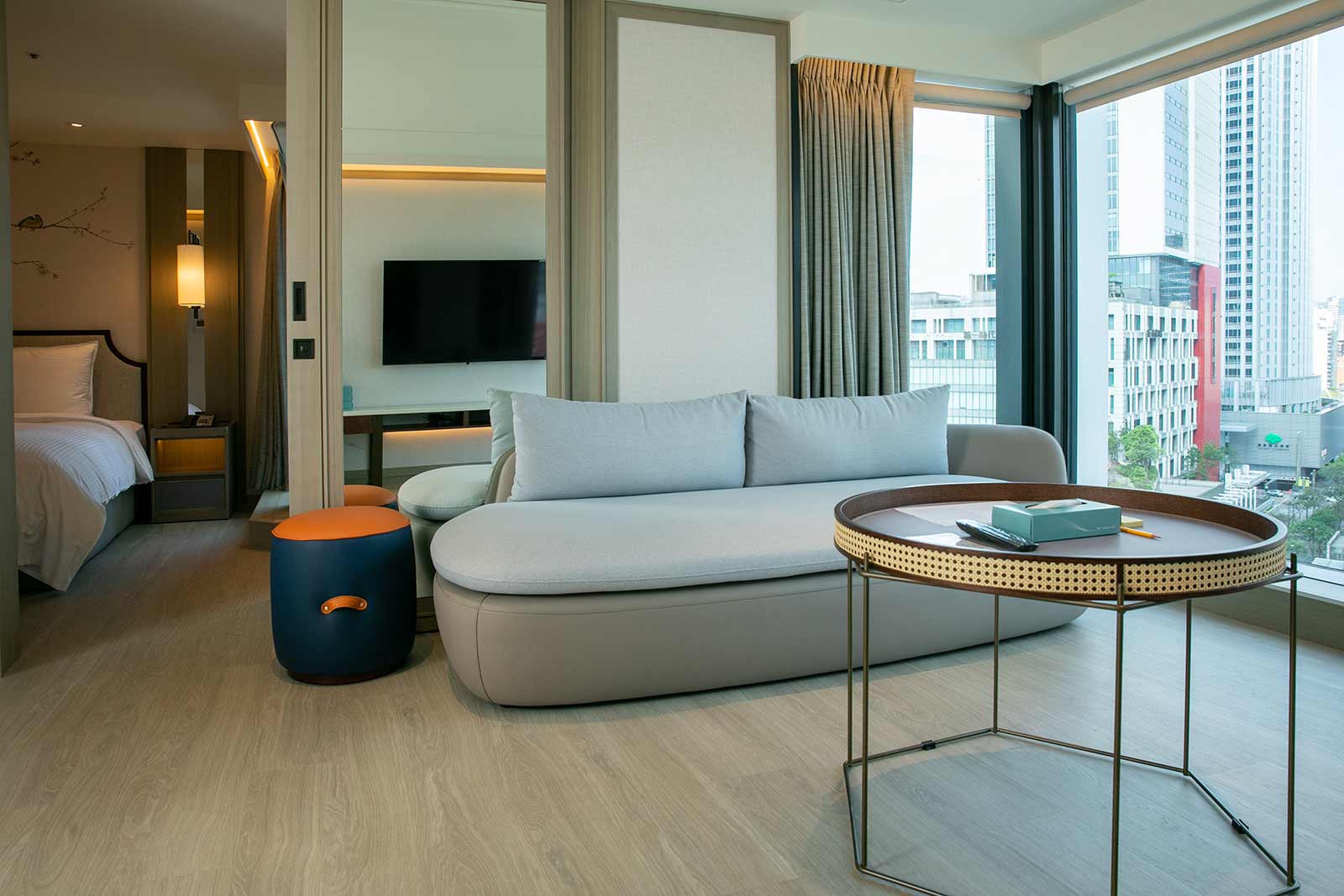 Photo by Chien-Ying Chiu
Photo by Chien-Ying Chiu
Each unit has independent air conditioning installed so that no exchange of air takes place between the rooms and the corridors, which aims to prevent smoke exposure. Moreover, Ma took into account that business customers value their privacy. Therefore, elevator and staircase access are separated from each other to minimize encounters.
Independent people flows and air conditioning, and no carpeting are all features that “exceed CDC (Taiwan Centers for Disease Control) standards,” notes Hanns House General Manager Lei Li-chih, an electrical engineer who helped design the negative pressure isolation units at Wanfang Hospital in Taipei in 2003, during a SARS epidemic that claimed more than 340 lives in Taiwan.
Ma was moved when she watched TV coverage of Taiwanese studying abroad stuck at airports abroad as they tried to flee the spreading pandemic. “Many students called their families back home begging tearfully to return to Taiwan,” says Ma. On top of that, she received a call from Taipei City’s Department of Information and Tourism, which was scouting for places that could shelter returning citizens without a place to go during compulsory home quarantine.
What if this had happened to her own four children? Thinking to herself, “Hanns House is equipped with all this hardware. If we don’t do it, who is going to act?”, Ma threw caution to the wind and told Lei to prep the hotel for quarantine guests.
There is Always Risk, the Key is How You Manage it
As a former risk manager, Ma knows that risk is everywhere, but also that good management is the key to mitigating it.
After winning support from 95 percent of her employees for her plan, and less than five days of emergency training, Hanns House welcomed 100 Taiwanese students who were returning from abroad.
Ma lowered the regular room rate from NT$16,000 to between NT$7,500 and NT$8,500. Although the hotel receives a subsidy of NT$1,000 per day per room from the Taipei City Government, this is still a far cry from covering costs and recent additional expenses for protective equipment.
Ma had a hospital-grade ionizer air purifier installed at the entrance in the basement through which quarantine guests enter the hotel. Four retired former Taipei City Hospital nursing staff have been hired to provide the necessary expertise, working in shifts. Several dozen ultraviolet disinfection devices, the kind used in hospitals, have been purchased as well as personal protective equipment such as gowns and gloves and rubbing alcohol.
The Taipei City Government apparently considers these measures exemplary because they are distributing Hanns House’s quarantine SOP as a reference for other hotels that provide quarantine accomodations away from home.
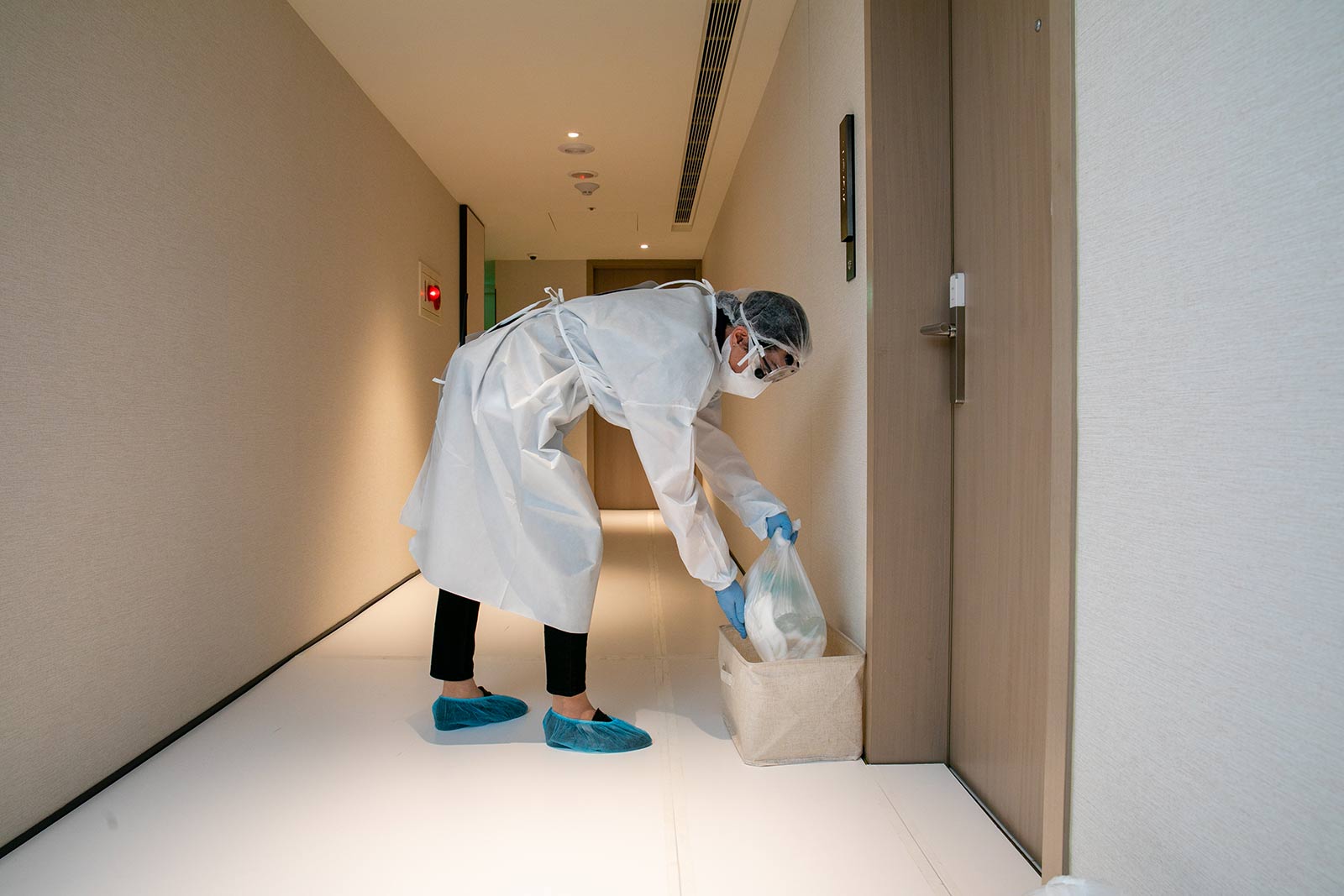 Photo by Chien-Ying Chiu
Photo by Chien-Ying Chiu
Preferring to Take the Hard Road
It would not be truthful to say that Ma does not worry about the reputation of the Hanns House brand, given the stigma that is commonly associated with infectious diseases.
As Lei explains, around 70 percent of the hotel’s target customers are high-end business guests. “They care more about what you do to guarantee the hotel’s cleanliness than the average guests,” notes Lei, speaking from his own experience from many years of traveling abroad.
During her more than 20-year career, Ma, who prefers to take the hard road, has crossed into many different fields. Coming from the finance industry, she entered high-tech electronics, and then founded a children’s book publisher before most recently launching new ventures in the F&B and hospitality industry.
Born in 1969, Ma became chairperson at Yuanta Securities Investment Trust before she turned 30. In 2012, she took over as chairperson at HannStar Display Corporation, a company founded by her father-in-law, which had been showing losses for more than a decade. One month after taking office, she fired one third of the top management. In her third month she terminated loss-making transfer investments to lead the company back to profitability in her seventh month.
Preparing for the company’s transformation, Ma invested the profits in prime real estate in Taipei, buying a store location on Guangfu South Road, land on Dunhua South Road and an office high-rise in Xinyu District, paving the way for diversifying into the hotel business.
From an investor angle, renting out the entire building would have appeared to be the easiest way to make money. But, as her father-in-law Chiao Ting-piao had once told her, “Don’t count on the best scenario without first considering the worst,” so she decided to split the risk by putting only half of the building up for rent and using the other half for a hotel.
Defying industry practice, she reserved the lower floors for the hotel, while the higher floors with the panoramic view house the offices. She reasoned that a business guest is more interested in a room’s size than its view. On the other hand, office space in the Xinyi District commands higher rents if it comes with a good view of the surroundings.
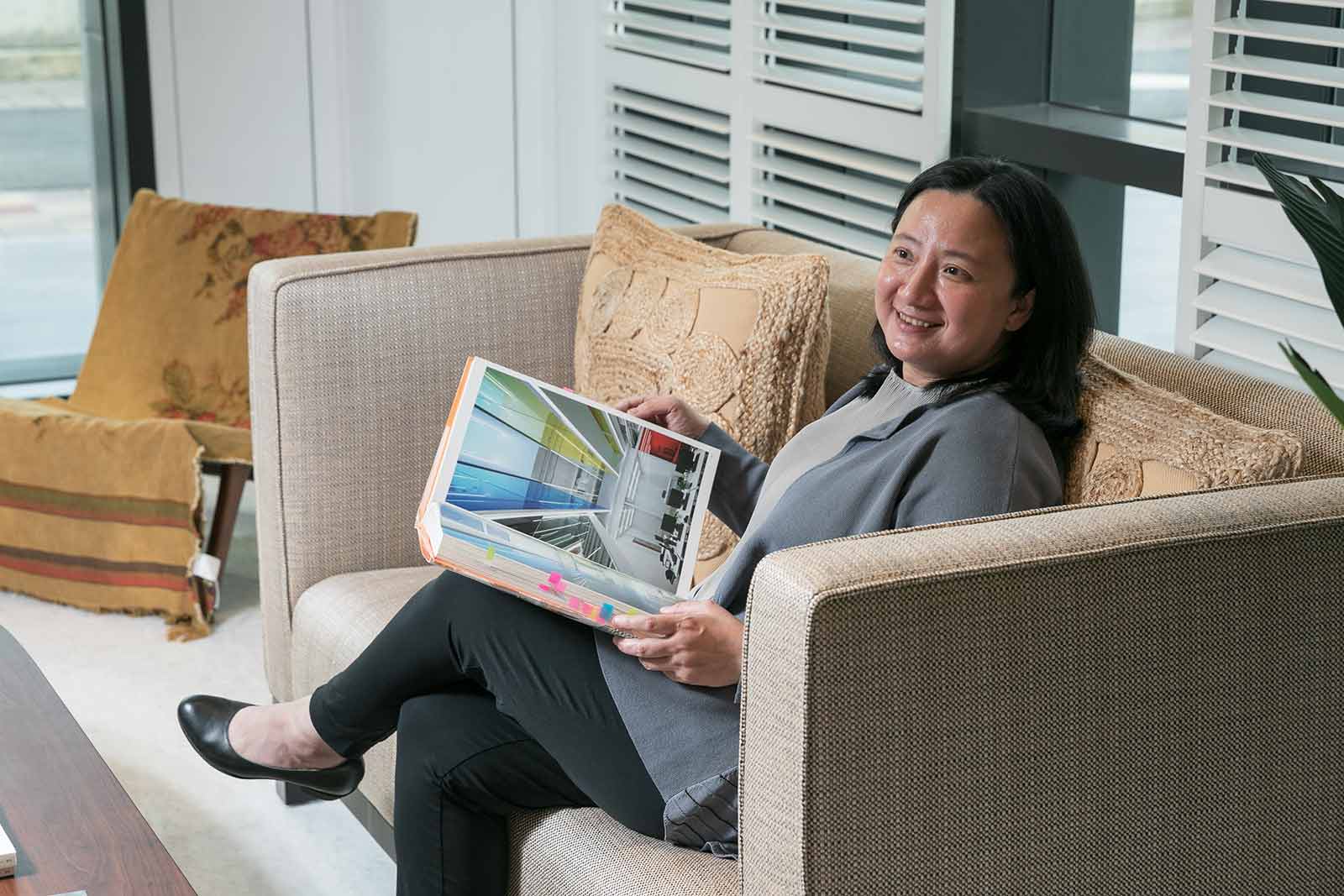 Photo by Chien-Ying Chiu
Photo by Chien-Ying Chiu
Ma encourages her supervisor staff to draw on the inconveniences observed when staying at hotels abroad to come up with ideas on how to further improve the experience at Hanns House.
Lei, for example, spent three months figuring out how to ensure that hot water comes from the tap within five seconds after turning it on. In the end, this meant sacrificing one room every third floor to make space for a machine room. Ma did not hesitate to go through with the idea even though it meant higher costs.
“The hotel has not even opened, but I don’t think there is anyone in Taiwan’s hotel industry who doesn’t know Hanns House,” notes David Ting, general manager of hotel and restaurant operator Fleur de Chine International Hotels Corp. Ting observes that Ma’s example of seizing the opportunity to win the spotlight is finding followers. Already, S Hotel and Just Sleep Linsen in Taipei have joined the quarantine hotel line up.
Lei has already a plan to convince future guests that the hotel is completely safe once the pandemic is over. He will ask professor Yew Khoy Chua at National Taipei University of Technology, who is an authority on negative pressure isolation rooms and also happens to be Lei’s former thesis supervisor, to make the process for disinfecting the entire building transparent to the public.
Have you read?
♦ COVID-19: Live updates
♦ COVID-19: How Taiwanese Companies Are Rethinking 2020
♦ Beyond Relief Packages, a Chance for Taiwan to Transform into a Tourism Hub
♦ Demand Will Slow, Not Disappear, Says Evans Tu
♦ How can Taiwan Cope with the Worst Economic Blow Since WWII?
Translated by Susanne Ganz
Edited by TC Lin
Uploaded by Judy Lu







